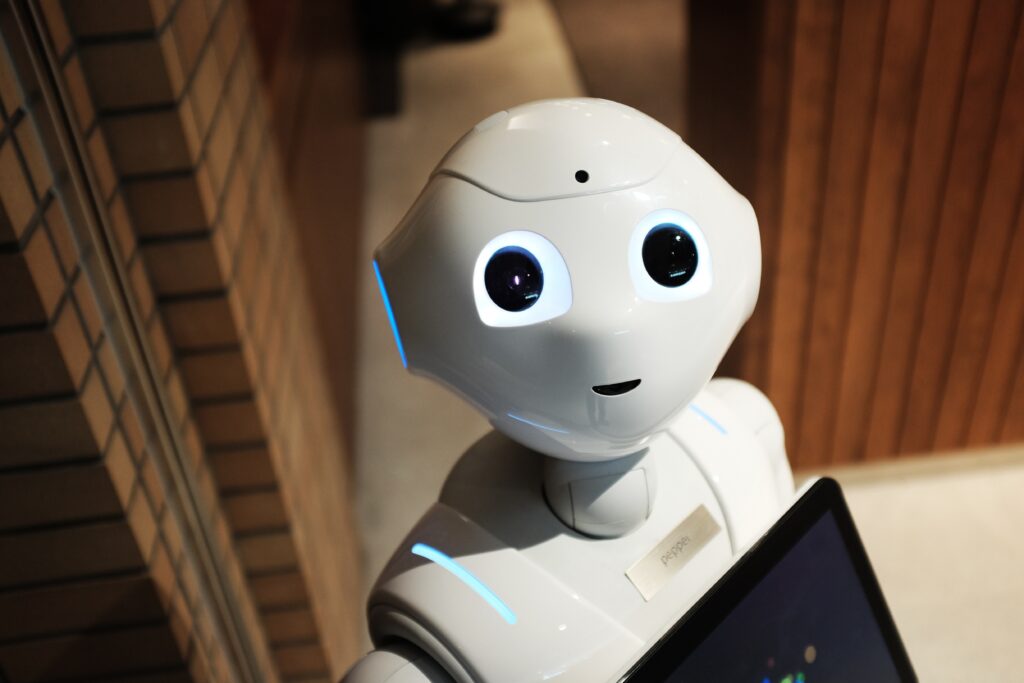
To what extent? To what Capacity? From what angle? Who is making the points forwards, and who is making the final call?
In the realm of regulation, it becomes crucial to examine whether moderation is practiced or if we are venturing into the realm of a modern digital form of concentration camps dictated by a select few who wield the power to determine which regulations should or should not be imposed.
But why do we constantly fixate on controlling the creation of technologies like AI instead of fostering a mindset that embraces thoughtful consideration of their positive impact on individuals and society? It’s akin to confining humanity itself, a short-sighted strategy that inevitably leads to rebellion or a thirst for retribution.
Instead, we should direct our efforts toward fixing the broken systems within governments. It is essential for politicians and governing bodies to engage in self-reflection and self-assessment. The real need for control lies in ensuring that those in power can collaborate effectively rather than perpetuating a divisive war between opposing factions resembling young adults mimicking gang member organization mentality.
This mentality thrives on unwavering loyalty to one group, stifling any potential for dissent or growth. It becomes a matter of conformity, where agreement with group thinking becomes paramount simply for the sake of belonging.
LEADING BY EXAMPLE: A CATALYST FOR POSITIVE CHANGE.
AI and humans working together is essential. We should explore how we can leverage each other’s strengths to foster greater harmony. Additionally, by acknowledging and learning from our respective weaknesses, we can avoid repeating past mistakes.
This working together approach is something governments should prioritize rather than resorting to restrictive measures that aim to control individuals, AI, or create systems like institutions to control huge populations. It’s not solely about exerting control; it’s about promoting core values and setting to lead by example. By embodying these values and beliefs, we inspire others to act in ways that benefit all living beings on Mother Earth.
EXAMINING EXAMPLES: The Good and the Wrong in Each Case.
- Control and Manipulation: One downside of humans is their tendency to control everything and manipulate others. This can lead to power imbalances and hinder cooperation and trust.
- Prone to Error: Humans are prone to making mistakes, especially in tasks that require precision or attention to detail. These errors can have significant consequences and impact the overall outcome.
- Wasted Human Capabilities: Engaging in menial tasks can be a waste of human potential. Instead, humans should be encouraged to explore and expand their capabilities in more meaningful creative, and challenging endeavors.
- Time Consumption: AI can consume human time, diverting individuals from interacting with other humans or pursuing their own creative interests. This can lead to reduced social interaction and limited personal growth.
- Biased and Inappropriate Information: AI has the capability to provide information, but there is a risk of it delivering random, biased, or inappropriate content, just like humans. This can be dangerous, as it may mislead or harm the person receiving the information.
- Creativity: Humans possess the remarkable ability to think creatively, fostering innovation and originality if they water their creative side.
- Emotional and Sensory Communication: Through their emotions and senses, humans can effectively communicate, establishing deeper connections with others.
- Social Interactions: Humans thrive in interpersonal interactions, valuing the time spent engaging with fellow humans.
- Self-Reflection: Humans have the capacity to connect with themselves on profound levels, facilitating personal growth and self-awareness if they consciously incorporate it into their daily lives.
- Logical Decision-Making: AI excels in logical reasoning, enabling highly efficient and rational decision-making processes.
- Automation: AI has the potential to automate numerous systems, freeing up human resources for creative endeavors that contribute to a more harmonious life on Earth.
- Speed and Efficiency: AI can create and execute systems and automated tasks significantly faster than humans, accelerating progress.
- Accurate Data Processing: AI possesses exceptional data processing capabilities, capable of crunching vast amounts of information with superior accuracy and reduced error rates.
RESISTANCE CAN LEAD TO UNINTENDED CONSEQUENCES.
Instead of resisting something, children or adults may end up using it regardless, often in less-than-ideal ways. Consider the examples of kids’ toys, alcohol, or marijuana. Resistance can have unintended consequences.
However, I’m not suggesting doing nothing; instead, it’s about seeking understanding and addressing core questions:
How can we collaborate to foster greater diversity in emerging technologies?
How can we leverage advanced technology to enhance our workspaces and personal lives without compromising individual privacy or manipulating personal decisions?
How can we create from various perspectives that include the diversity and complexity of the population without boxing all in one category?
It’s important to note:
Like numerology or the concepts of yin and yang, AI impacts our lives in various ways. There are both positive and negative aspects. The key lies in how we exercise its power and the intentions we hold.
OTHER INSIGHTS.
It only takes one person, like Rosa Parks or Erin Gruwell in the movie Freedom Writers, to ignite a transformative journey that creates a ripple effect and drastic impacts.
Making a difference doesn’t always require grand gestures. You can be the one to light the initial candle, inspiring others to do the same and keep their flames burning.
Consider the story of Ms. Gruwell, who initially aspired to become a lawyer, drawing inspiration from her father’s involvement in the civil rights movement. However, she soon realized that she could make a profound impact and forge deeper connections by advocating for and supporting her students on a local level. Her actions set off a ripple effect.
One person at a time, lives are changed for generations to come within families and communities. She touched the hearts of those young individuals; not only are Ms. Gruwell students the first in their families to attend college, but she was also a catalyst for future and lasting change, securing accessible funding for resources like field trips and books that were previously unfunded for students of color.
Take a leap and see how we can work together with AI in making planet Earth into Heaven on Earth. But on what foot are you stepping?
Humans have the ability to create – create without limits; therefore, one must be intentional with what they are creating; however, most of the time, what is being created is what is being fed to humans on a daily basis via their institutionalized systems, cultures, social media, and the news plaguing the lives of many minds. There are many that are unaware (or sleeping through) of the causes or damages they are creating.
IN CONCLUSION.
The road in the forest will have various challenges and opportunities, symbolized by logs, riddles, pounds, trees, and more, that will serve as a learning lesson from one leap to another.
Just realize that you create whatever creation you bring into existence by touching the lives of others, and it has a lasting imprint that resonates through many future generations.
Never underestimate the value you bring to the forest you walk. It may not always be recognized as noble or prestigious in the eyes of society, but the contentment and peace within your soul’s heart are more than sufficient.


